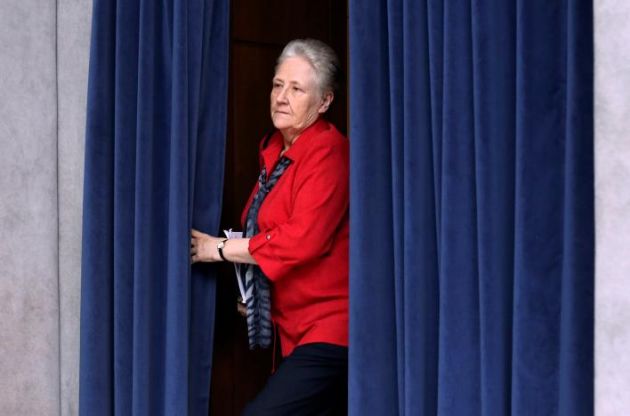Pope Francis reducing sanctions for pedophile priests is a 'worrying sign,' Catholic Church authority says

With the pontiff's recent decision to tone down the repercussions for convicted pedophile priests, a Catholic official voiced his concerns that the Vatican is slowly backing away from addressing the issue.
"It's not a good indication of a strong zero-tolerance approach," said Francis Sullivan, chief executive officer of the Truth, Justice and Healing Council, which was established by the Australian Catholic Bishops Conference and Catholic Religious Australia.
In February, Pope Francis reduced the sanctions against Mauro Inzoli, an Italian priest who was convicted of sexual abuse of five children. Inzoli was originally slated to be "defrocked" or removed from priesthood as advised by the Vatican Congregation for the Doctrine of the Faith, the pontiff's advisory council. However, the pope commuted the sentence to a lifetime of penance — a move that garnered criticism against Francis' advocacy of a "merciful" church. The Inzoli incident is just one of the many pedophile cases that Francis has overruled.
"It's not the ultimate penalty," Sullivan said, referring to Inzoli's punishment of living a life of prayer and penance. He emphasized that the "ultimate sanction should apply" to priests who have been convicted of child abuse.
In 2014, the head of the Catholic Church established the Pontifical Commission for the Protection of Minors. He selected two abuse victim-survivors to serve on its panel — Peter Saunders and Marie Collins. However, Saunders was dismissed from the council in 2016, and Collins quit the commission in early March.
"The lack of cooperation, particularly by the dicastery most closely involved in dealing with cases of abuse, has been shameful," Collins said in her statement. She criticized the pope for his too forgiving response to abuse cases.
"I find it impossible to listen to public statements about the deep concern in the church for the care of those whose lives have been blighted by abuse, yet to watch privately as a congregation in the Vatican refuses to even acknowledge their letters!" Collins added. She said that the Church's behavior is a reflection of how it handles the abuse crisis: with promising statements in public but contrary decisions in private.
Sullivan urged the Australian community to address the issue. He explained that the cultural ramifications of the priests' unchallenged authority in the past are still present today.
"Our Catholic community now needs to call for stronger transparency and accountability from church leaders," he stressed.